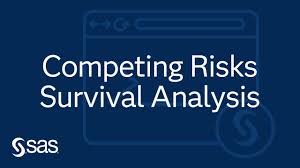Unveiling the Intricacies: The Art of Analyses in Understanding Complex Issues
by twib

The Power of Analyses in Understanding Complex Issues
Analyses play a crucial role in unraveling the intricacies of complex issues that shape our world. Whether it’s in the field of economics, politics, science, or any other domain, the ability to conduct thorough analyses provides invaluable insights that can drive informed decision-making and foster progress.
Breaking Down Complex Problems
When faced with multifaceted problems, analyses serve as a tool to break them down into manageable components. By examining various factors and variables involved, analysts can identify patterns, trends, and relationships that might not be apparent at first glance. This deconstruction process allows for a deeper understanding of the issue at hand.
Identifying Root Causes
Analyses are instrumental in identifying root causes behind complex issues. By delving into the underlying factors contributing to a problem, analysts can pinpoint the fundamental reasons driving certain outcomes. This knowledge is essential for developing effective strategies to address and resolve these issues at their core.
Predicting Future Trends
Through analyses of past data and current trends, analysts can make informed predictions about future developments. By extrapolating patterns and projecting potential scenarios based on their findings, analysts help individuals and organizations anticipate changes and adapt proactively to upcoming challenges or opportunities.
Informing Decision-Making
Analyses provide decision-makers with valuable information that guides their choices and actions. Whether in business, government, or academia, well-informed decisions are essential for achieving desired outcomes and mitigating risks. Analyses serve as a foundation for evidence-based decision-making that considers all relevant factors.
Conclusion
In conclusion, analyses are indispensable tools for navigating the complexities of our world. By conducting thorough analyses, we gain deeper insights into intricate issues, identify root causes, predict future trends, and inform decision-making processes. Embracing the power of analyses empowers us to tackle challenges effectively and pave the way for progress and innovation.
Frequently Asked Questions About Analyses: Definitions, Usage, and Plurals
- What do you mean analyze?
- Which is correct Analyses or analysis?
- How do you use Analyse in a sentence?
- What is the plural of analysis?
What do you mean analyze?
Analyzing refers to the process of examining and evaluating information or data in order to gain a deeper understanding of a subject or issue. It involves breaking down complex concepts into more manageable parts, identifying patterns or trends, and drawing meaningful conclusions based on evidence and logical reasoning. Through analysis, individuals can uncover insights, make informed decisions, and solve problems effectively by looking beyond the surface to reveal underlying connections and root causes.
Which is correct Analyses or analysis?
When considering the usage of “analyses” versus “analysis,” it’s important to understand their distinct roles in the English language. “Analysis” is typically used as a singular noun to refer to the process of examining something in detail, while “analyses” is its plural form, indicating multiple instances of such examination. Therefore, if you are referring to a single examination or study, “analysis” would be the correct term to use. On the other hand, if you are discussing multiple examinations or studies, then “analyses” would be more appropriate. Clarity in communication is key when choosing between these two terms to ensure that your message is conveyed accurately and effectively.
How do you use Analyse in a sentence?
In addressing the frequently asked question on how to use “analyse” in a sentence, it is essential to understand that “analyse” is a verb commonly employed to describe the process of examining something in detail. For instance, one could say, “The data analyst will analyse the market trends to identify potential opportunities for growth.” In this context, “analyse” is used to convey the action of closely studying and interpreting information to gain insights or draw conclusions. By incorporating “analyse” effectively in sentences, individuals can articulate their analytical processes and demonstrate their ability to scrutinize information methodically.
What is the plural of analysis?
The frequently asked question about the plural form of “analysis” often arises due to the unique way in which English forms plurals. In this case, the plural of “analysis” is “analyses.” Understanding this linguistic nuance is important for clear communication and proper usage in written and spoken contexts. By acknowledging and remembering this grammatical rule, individuals can effectively navigate language intricacies and express themselves accurately.
The Power of Analyses in Understanding Complex Issues The Power of Analyses in Understanding Complex Issues Analyses play a crucial role in unraveling the intricacies of complex issues that shape our world. Whether it’s in the field of economics, politics, science, or any other domain, the ability to conduct thorough analyses provides invaluable insights that…
Latest articles
Latest comments
Archive
- March 2026
- February 2026
- January 2026
- December 2025
- November 2025
- October 2025
- September 2025
- August 2025
- July 2025
- June 2025
- May 2025
- April 2025
- March 2025
- February 2025
- January 2025
- December 2024
- November 2024
- October 2024
- September 2024
- August 2024
- July 2024
- June 2024
- May 2024
- April 2024
- March 2024
